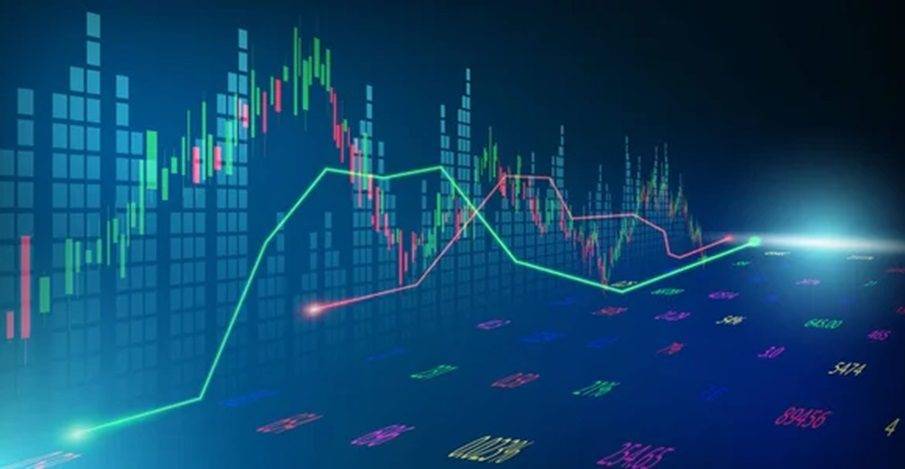7 Major Mistakes To Avoid As A Forex Trader

The frequent price fluctuations in the forex market make it a place full of opportunities for trading and making profits. However, the volatile nature of currency pairs also increases the risk of trading, and only some can handle this risk properly. Underestimating the risk and poor risk management can be grave mistakes when it comes to forex trading, leading to huge losses and accounts being blown up. The number of traders who fail to accomplish their trading goals is astounding, and you must follow a cautious approach to avoid ending up in this category.
In this article, I will tell you about 7 major mistakes that you need to avoid as a forex trader so that you can move closer to your goals without losing much of your trading capital.
Lack of Proper Research and Rushing of the Learning Process
Impatience and eagerness can be fatal flaws for a forex trader, as you will want to get into live trading immediately without doing enough market research and rushing the learning process. The risk of loss is always there even when a trader has enough market knowledge, skills and experience. Now, imagine the amount of risk when you don’t have any of these and enter the market without understanding its dynamics. This mistake must be avoided when deciding to become a forex trader.
Firstly, take your time to study and observe the market by learning the characteristics of different currency pairs and how their prices fluctuate in particular time frames. You need to understand the meaning of various jargon related to the forex market and trading in general. Terms like pips, position size, lots, leverage, and margin are not things we use in daily life, but when you get into forex trading, you will have to learn what each of these terms means.
For instance, the margin is the amount of funds needed to be in your trading account to execute a trade or keep it open. It is like collateral, as the forex broker will execute your trades by connecting you to the market. The margin requirement depends on the amount of leverage used, trade size, currency pair being traded and account base currency. You can just enter all these details into a margin calculator, and it will instantly show you the exact amount of margin needed.
Taking Excess Risk
Risk and reward indeed co-exist in the forex market. You cannot earn profits without risking some of your money for placing the trade. The amount of money you risk for a trade is determined by the trade size in lots, also known as position size. Larger-sized trade positions have higher profit potential, and when you use leverage for increasing the trade size with a lower margin requirement or lesser amount of trading capital, you can maximise the potential gains.
However, many traders forget that the higher the trade size, the higher the potential losses will be if the market or currency pair price does not move as per your expectation. Thus, your risk of loss also increases, and taking excess risk is a grave mistake in forex trading. You should assess your risk tolerance by deciding the amount of risk you are comfortable with and should only risk what you can afford to lose in the trading process.
Your risk per trade should not be more than 2% of your total account balance in any case, as that would result in a higher account drawdown. When you limit the risk per trade along with the number of trades, you will be able to withstand losses without it taking a toll on your financial health. You can still attain your target profits with a sound strategy with a higher win rate and a favourable risk/reward ratio. Then, you can easily convert the profits or losses you’ve made in your base currency using a currency calculator. This will give you a good idea of how much you have gained or lost.
Trading Without an Exit Plan
You need to decide the closing price for a trade before opening a position, and this is what we refer to as an exit plan. However, many forex traders tend to forget about this aspect while entering a trade. They just focus on finding a favourable entry point and leave the trade to run on its own. In this case, you will have to keep monitoring the market to close the trade manually, and if you miss out on the best prices while you are away from the trading space, you will end up wasting the opportunity or will end up with a bigger loss.
Hence, you need to be sure about the prices at which you can close the trade at a profit. Placing a take-profit order is the best way to avoid missing a favourable price for closure. This way, you can avoid the common trade scenarios where winning trades turn into losing ones after a trend reversal. Suppose you plan to catch 20 pips as profit in one trade; then you can simply place the TP at that level and leave without worrying. The trade will be automatically closed once the price hits the point where you can realise 20 pips as profit.
Suppose you haven’t grasped the concept of pips and pip value. In that case, I highly suggest relying on automated tools like Forex calculators, which include a pip calculator that helps you calculate the exact number of pips you should catch in a trade based on the monetary value of pips in your account currency. Using such tools, you can calculate accurate values and use this information to devise and execute your trade exit strategies.
Panicking and Being Illogical
Feeling overwhelmed and intimidated in the fast-moving forex market with constant price fluctuations is common. Even though the volatility gives us a lot of trading opportunities, it can be hard to handle when things don’t work out in your favour. Sometimes, the prices do not move as per your expectations, and losses are inevitable. But you should not panic in such a situation as this will lead to emotional decision-making.
When you are under the influence of emotions like fear or stress, you will become illogical and make poor trading decisions. Hence, you should train your mind to stay calm and composed under all kinds of trade scenarios, as a professional and rational approach is required to survive and thrive as a forex trader. So don’t panic and stick to your plan while adapting to market shifts.
Skipping Demo Trading
The primary goal of each and every forex trader is making profits, but when you jump into trading without enough preparation, you are signing up for losses. This happens because many beginners don’t spend enough time on their demo accounts or skip demo trading altogether as they want to make actual profits without wasting any time. But practising with virtual funds on a demo trading account is very important before going live with real funds.
On a demo account, you get to observe and learn about the market in a realistic and risk-free environment, which makes you skilled enough to deal with market fluctuations in the best possible manner. Newbie traders who skip demo trading always regret their decisions as they encounter more losses on a live account due to inexperience and lack of practical knowledge.
Not Placing Stop-Loss Orders
Another mistake that no forex trader should make is not placing stop-loss orders. This is a no-brainer, as trading without a stop loss is like driving without a seat belt. A stop loss is an automated exit when your trade goes into a loss, and this saves you from excess losses and limits the account drawdown. So, you need to place it at a level where losses are minimised but don’t place it too close to the entry price, as that will lead to sudden exits when there is a brief pullback before the trend is resumed.
Not Closing Losing Trades Early
This mistake can be connected to the above-stated point of not placing stop-loss orders. Many traders tend to place wide stop loss or not place one as they are too adamant about exiting trades at a profit. They will hold onto the losing trade, expecting the market to move in their favour, but when this does not happen, the losses will surpass your risk tolerance. So, you need to close the losing trades early by placing a stop loss at the proper place.
Trade Safe!
Besides the mistakes mentioned above, some more common trading pitfalls happen due to greed and emotional trading. Learning about trading psychology, along with the fundamental and technical trading concepts, is important to avoid any costly mistakes. But you don’t need to worry about minor mistakes in the initial phase as you will continue to improve and realise where you went wrong while learning and gathering experience in the forex market. So, move forward cautiously and be disciplined to trade within a safe zone.










